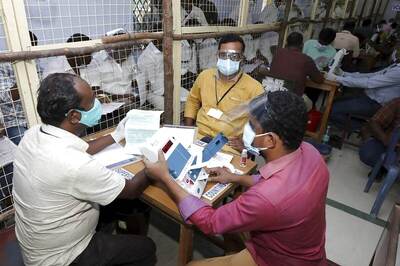
views
Success can never depend on one factor alone, can it? Most UPSC Civil Services Exam (CSE) aspirants believe that to be the case. The myth, that one needs to study 16-18 hours a day to be able to crack UPSC, must be tackled head-on. There’s more to the UPSC matrix than how much one studies in a day or how early one starts the preparation.
Success depends on the right ecosystem. The Civil Services Exam is one of the toughest examinations in the world. More than 9 lakh aspirants apply for 900-odd vacancies – making the success ratio just about 0.1 per cent. While the number of aspirants has been steadily increasing since 2014, the number of vacancies has been declining. The CSE 2021 notification lists just 712 vacancies. Thus, clearing the exam not only requires focused hard work from the aspirants but also a proper ecosystem.
The question that arises is what constitutes a proper ecosystem for UPSC aspirants? How can they minimise the external impediments in their path to success?
UPSC has been too opaque in its approach and aspirants are completely in the dark when it comes to what UPSC actually expects. This adds subjectivity to this ever-uncertain exam. UPSC should have regular outreach programmes with the aspirants to give a tentative idea of what are its expectations and standards of selection.
An ecosystem constitutes of abiotic factors too. In the case of civil services it’s important that an aspirant gets among other things, healthy food, clean environment, and a reasonably comfortable and well-ventilated place to live. A sound mind resides in a sound body. Aspirants can choose to ignore physical activities and exercises at their own risk. Considering the exam cycle, one can easily conclude that this exam is more of a marathon than a sprint. So, a healthy lifestyle is the only way to swim through the process smoothly.
It is also important to talk about the scenario when things start diving south. At times, despite ticking all the boxes, the candidate may fail. Some even resort to extreme and unfortunate steps such as attempting suicide. Thus, the role of counselling in creating the proper ecosystem cannot be underestimated. Many of the aspirants are among the best in their respective fields and are unable to take failure in the right spirit.
The first ring of support is the aspirant’s family. For the majority of aspirants from middle and lower-middle classes, cracking CSE is not only their dream but the dream of their families. Thus, family is the first support system for the aspirants.
In such a long-drawn process, the role of teachers should go beyond just taking classes; it should also include consistent mentoring as well as counselling. There are several instances when aspirants seek more than just class notes and lectures. The teachers and the institute should not hesitate in providing all that is possible and necessary to support the students psychologically and emotionally.
Next comes the role of peer groups – friends, study mates, roommates etc. The peer group shoulders the responsibility of keeping the environment optimistic and at the same time realistic. It should motivate and uplift the confidence of the candidate. There should be a positive sense of competition among aspirants because that ultimately benefits everybody.
— Written by Shubhra Ranjan Co-Founder & Executive Director, Shubhra Viraj EduTech Private Limited
Read all the Latest News , Breaking News and IPL 2022 Live Updates here.




















Comments
0 comment